People Who Are Always Tired But Can Never Fall Asleep Usually Have These 11 Reasons
Getting the rest you deserve might be simpler than it seems.
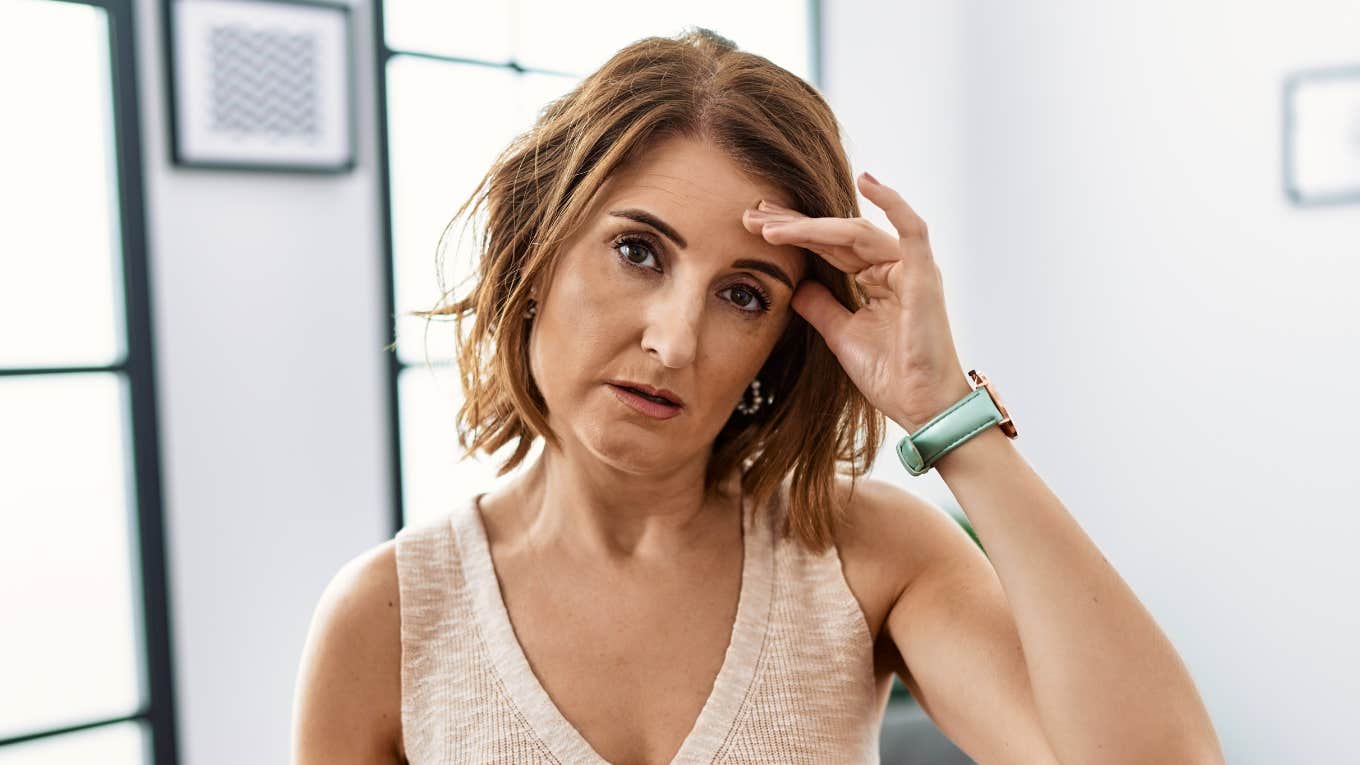 Krakenimages.com | Shutterstock
Krakenimages.com | Shutterstock We've all been there: from the moment we wake up and get started with our day, we just can't wait to get back into bed. Even getting ready for bed at night, we're giddy with the thought of finally going to sleep, but once we're laying down, it feels impossible. It's this sad and unsettling dichotomy between feeling exhausted during the day and being wired at night that can be incredibly frustrating for the average person.
However, there are reasons people who are always tired but can never fall asleep usually have, many of which actively sabotage their sleep schedule and ability to get quality sleep. By recognizing some of these common reasons and considering some of your own habits and behaviors, you may be able to finally get the rest you deserve.
Here are 11 reasons people who are always tired but can never fall asleep usually have
1. They're constantly overthinking
 afotostock | Shutterstock
afotostock | Shutterstock
When your body is exhausted, but your mind is constantly racing. With a mix of anxiety, worry, and overthinking tendencies, it can feel impossible to fall asleep at the end of the day. Whether you're thinking about something stressful like work or are just generally anxious, if you're not taking the time to unwind your mind with mindfulness activities or even physical activity, your sleep schedule will suffer as a result.
Even unresolved or repressed emotions can make it hard to relax, as they tend to come out once you lay down with no more distractions to rely on to avoid addressing them.
2. They have a poor nighttime routine
 Lysenko Andrii | Shutterstock
Lysenko Andrii | Shutterstock
People who are always tired but can never fall asleep might be able to get better sleep by simply adopting a healthier nighttime routine. Adopting habits that allow your body and mind to unwind makes all the difference before bed, especially if you live an overly stressful or anxious life.
For example, it could be something simple, like not having a bedroom space that's conducive to quality sleep. It could also be nighttime rituals to unwind, like stretching before bed, reading instead of scrolling, or changing into comfortable clothes. Coupled with not going to bed at the same time every night or struggling with an alternate disorder affecting sleep, an unhealthy routine can make it feel impossible to get quality rest.
Additionally, if you're using your bed as a dinner table or work space during the day, that can also alter your brain's ability to associate it with a positive sleep routine. You're much less likely to immediately fall asleep or be able to unwind in the same place where you've just eaten or logged off from work, which is why an intentional sleep space is so important for a healthy nighttime routine.
3. They 'doomscroll' before bed
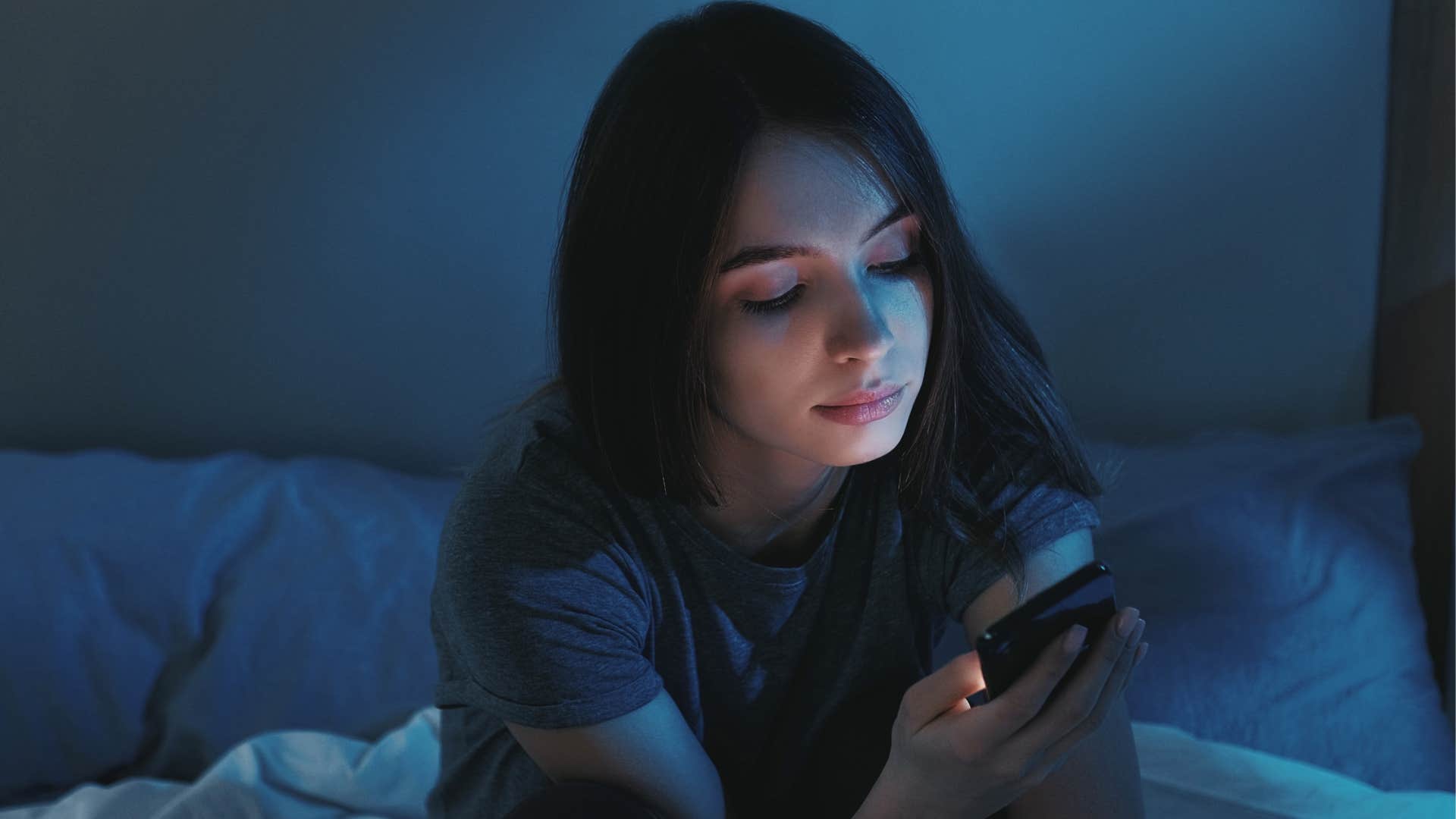 Golubovy | Shutterstock.com
Golubovy | Shutterstock.com
A great deal of research suggests that too much screentime before bed can dramatically alter melatonin production that helps assist people in falling to sleep. When you're scrolling before bed, your brain doesn't have any time to turn off, making it incredibly hard to fall asleep and stay asleep, even if your physical body is exhausted.
The same thing happens in the morning — your phone shouldn't be the first thing you see at the beginning and end of each day. Not only does it overstimulate and overload your brain with unnecessary information and stress, it disrupts your sleep patterns and natural wake cycle.
Of course, the natural sleep and wake cycle that's disrupted by the light on your phone at night can also be disrupted by any kind of unnatural light — from streetlights outside your bedroom window, to a bright nightlight, or an alarm clock, so it's important to be careful and intentional about what kinds of light you're allowing into your resting space.
4. They consume too much caffeine
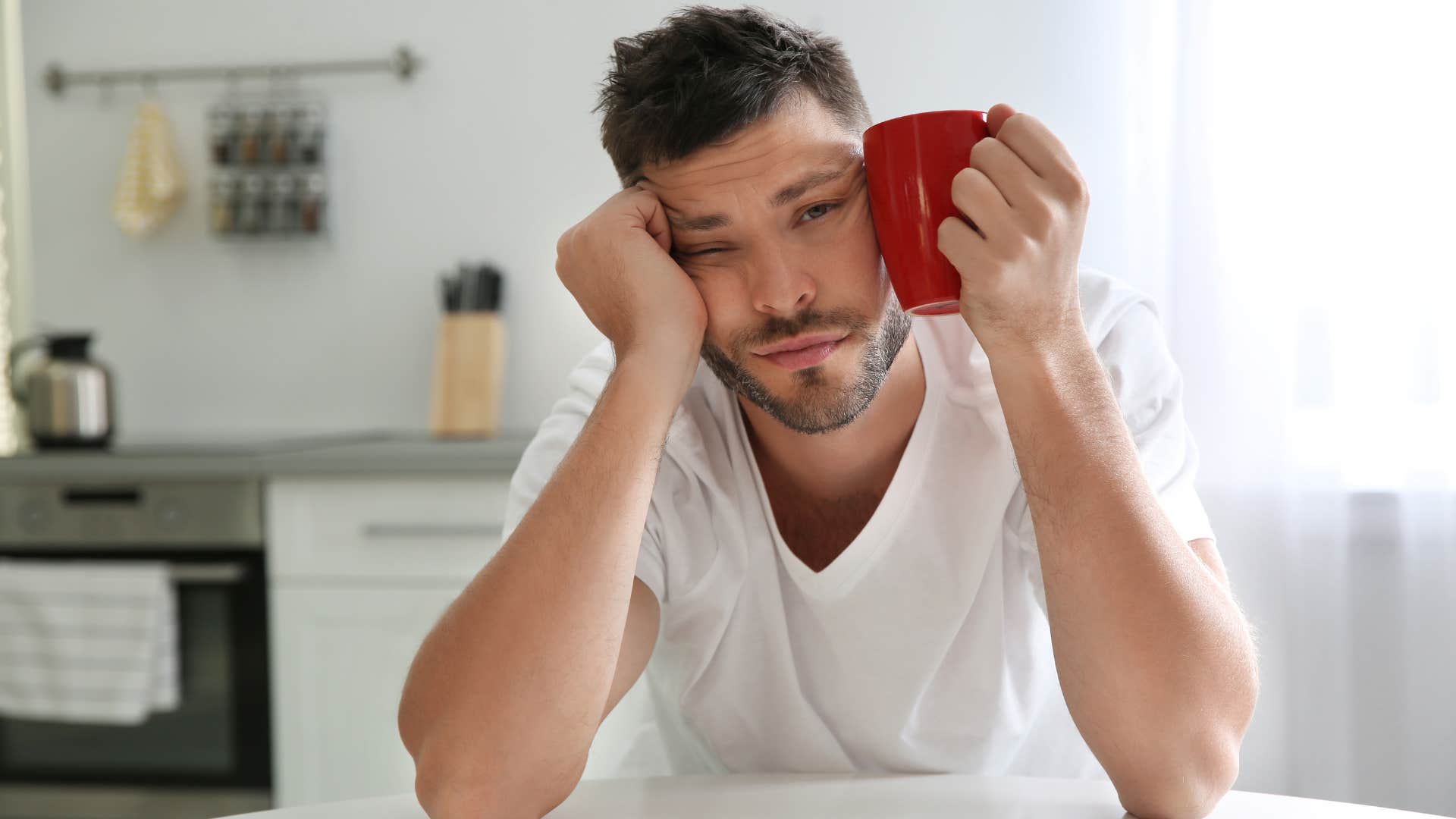 New Africa | Shutterstock
New Africa | Shutterstock
Caffeine is both the cause and the cure for too little sleep, according to a study published in Frontiers in Psychiatry. Obviously, drinking too much caffeine too late in the day can disrupt your sleeping patterns, but it can also have subtle effects on cognition when it's frequently ingested and relied upon for energy throughout the day.
The kind of wakefulness and alertness that caffeine sparks can make it harder for the body to naturally unwind, so people who are always tired but can never fall asleep may be drinking too much caffeine or ingesting it too late in the day.
It doesn't have to be an all or nothing approach when it comes to crafting a better sleep schedule. You don't have to cut out caffeine completely to be able to fall asleep, but being intentional with habits that have the power to affect your sleep is essential.
5. They're depressed
 Ground Picture | Shutterstock
Ground Picture | Shutterstock
The unsettling and frustrating dichotomy of fatigue during the day and restlessness at night is common for people with depression. The emotional turmoil associated with many depressive symptoms makes it difficult for people to truly unwind when bedtime rolls around.
Many people struggling with depression struggle with basic tasks like showering or brushing their teeth, which is why it's not surprising that their lack of exercise and inability to commit to routines around physical activity may also contribute to their instability to fall asleep at the end of the day, according to a study from Cureus.
Even if their mind has tricked them into believing that their body is exhausted, they're still wired and restless when bedtime rolls around.
6. They have an inconsistent sleep schedule
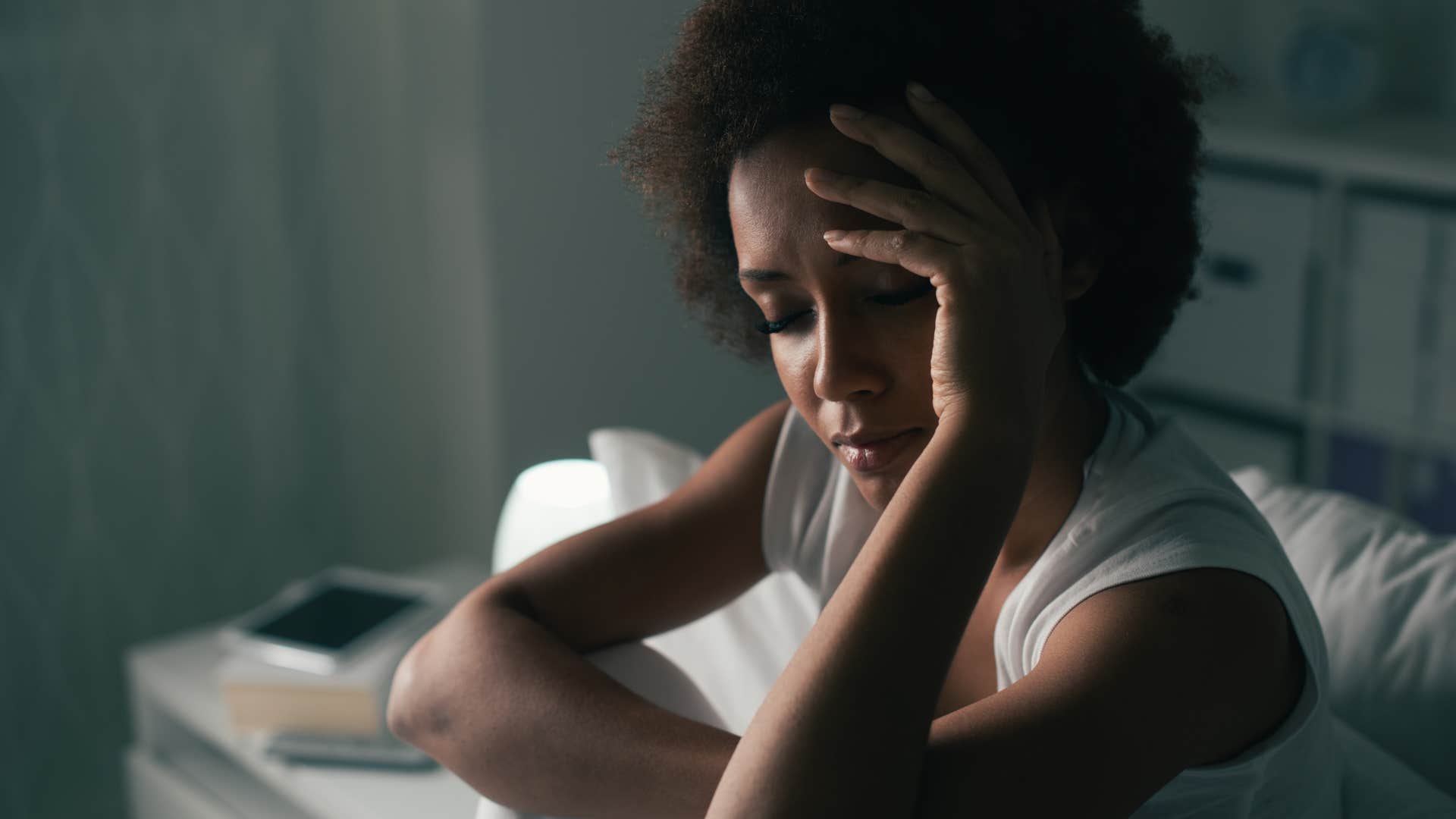 Stock-Asso | Shutterstock
Stock-Asso | Shutterstock
According to experts from Cleveland Clinic, not going to bed at the same time every night can have detrimental effects on a person's sleep schedule and their ability to get quality sleep. Especially for people with inconsistent work routines — like working nights a few days during the week — it can feel impossible and unrealistic to go to bed at the same time every night, but with the right nighttime routine and bedtime rituals, it's possible to get good sleep.
Of course, if you're able to intentionally set and follow a certain bedtime routine, including going to bed at the same time, it can help you to unwind your mind and fall asleep. But if it's not possible to go to bed at the same time, relying on other habits and rituals can help people who are always tired but can never fall asleep to finally get the rest they need and deserve.
7. They're burnt out
 Gorodenkoff | Shutterstock
Gorodenkoff | Shutterstock
Experts from the University of Michigan argue that people experiencing burnout can feel "tired but wired," unable to shut down their mind, anxiety, and worry when bedtime rolls around, even if their body is fatigued and exhausted.
People experiencing burnout, especially in today's world that pressures constant productivity, often live in a state of constant fight-or-flight mode, battling chronic stress that the body struggles to find peace and stillness within.
Of course, the only true solution to burnout is rest, so it's important to rely on bedtime rituals and mindfulness techniques that allow burnt out individuals to release their mind from the stress of anxiety and truly relax.
8. They have a hormonal imbalance
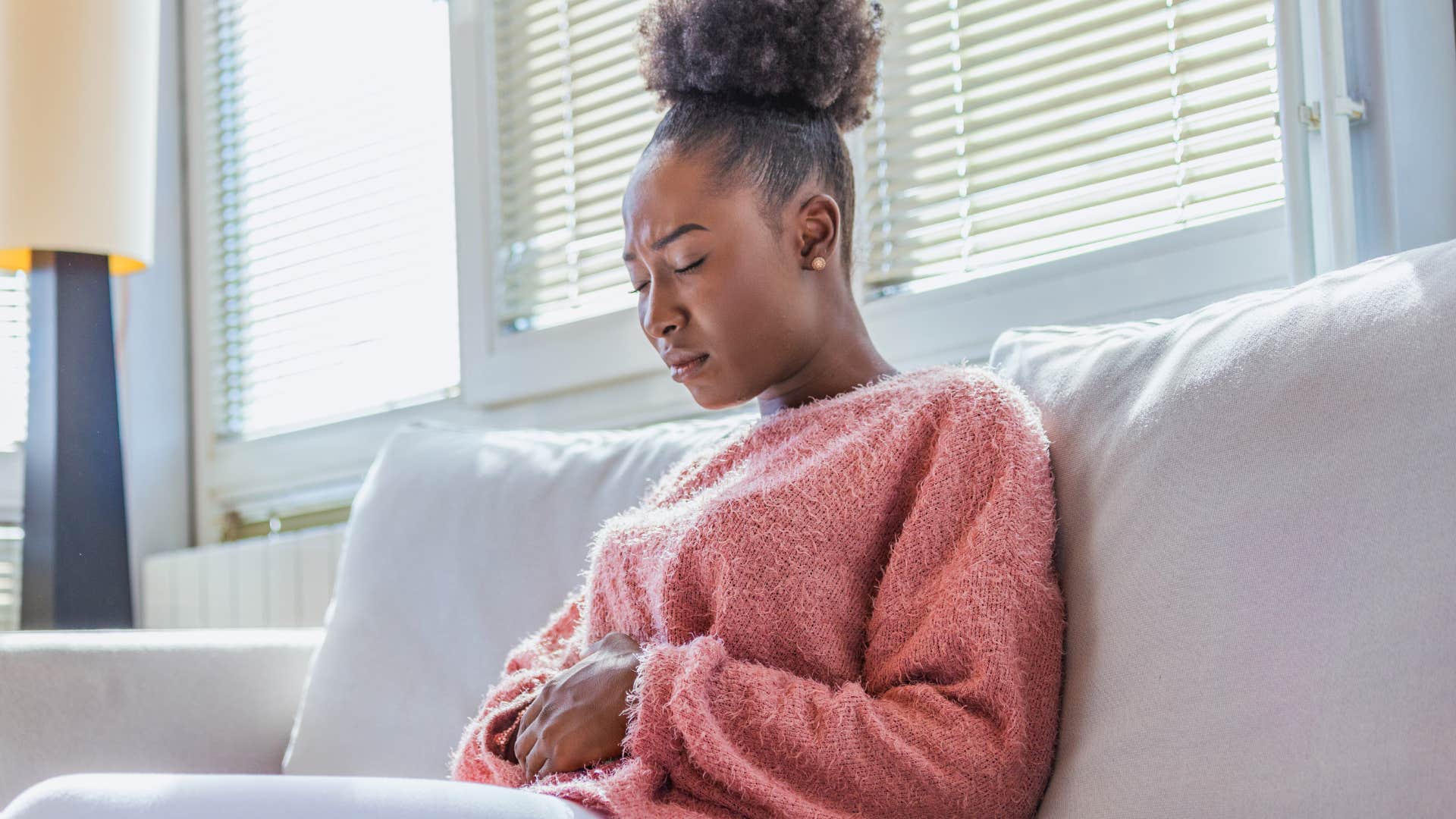 Photoroyalty | Shutterstock
Photoroyalty | Shutterstock
Endocrinologist Kelly Wood argues that people who struggle with hormonal imbalances often struggle with insomnia and falling asleep. "Hormonal insomnia can affect anyone. It can be due to pregnancy, menopause, thyroid conditions, and stress. Hormones that are most likely to affect your sleep patterns include melatonin, cortisol, estrogen, and progesterone," Wood said.
From heightened stress hormones like cortisol that affect sleep to hormonal imbalances that heighten fatigue, it makes true quality sleep hard to achieve. But it's not uncommon for people who are always tired but can never fall asleep to have an unsuspecting internal hormonal imbalance.
9. They eat a poor diet
 simona pilolla 2 | Shutterstock
simona pilolla 2 | Shutterstock
Simple dietary habits and choices throughout the day can greatly affect sleep patterns and the ability to get quality sleep, according to a study from the International Journal of Medical Sciences. From eating too much sugar and high processed foods to not carving out enough space for nutritious meals, our diets hold a lot of power over our body and mind's ability to unwind.
In addition to the kinds of foods you're eating, the time at which you eat them can affect sleep patterns as well. If you're eating too much right before bed, it can negatively impact digestion, disrupt your body's natural internal clock, and even make falling asleep harder if you're experiencing things like acid reflux or fullness.
10. They take too many naps
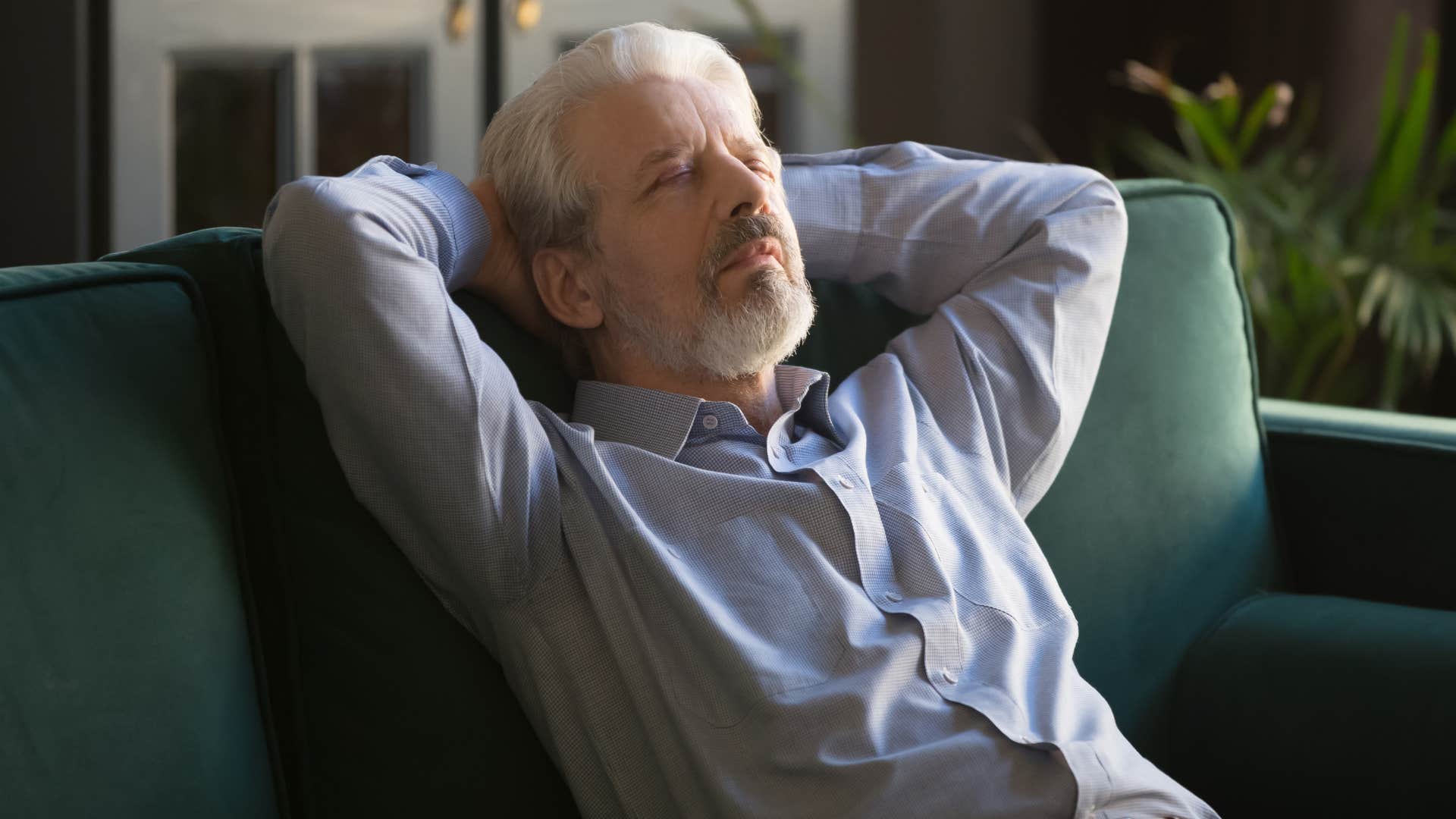 fizkes | Shutterstock
fizkes | Shutterstock
According to experts from the Mayo Clinic, a short 30-minute nap in the afternoon is actually incredibly beneficial for boosting energy levels and productivity for the average person, but too many naps or too long of a rest can impact people's ability to fall asleep at night, even if they feel exhausted and tired.
Napping too frequently during the day can mess with the body's natural sleep-wake cycle, making it hard for the brain to differentiate between when the body needs to rest and when it doesn't when bedtime rolls around. By limiting too much rest during the day and focusing on a routine that allows you to move your body, rest for a little bit, and leverage healthy habits like a well-rounded diet, your sleep schedule will naturally get easier to maintain.
11. They're not drinking enough water
 Rohappy | Shutterstock
Rohappy | Shutterstock
Being dehydrated can lead to restlessness and sleep cramps that disrupt the body's ability to fall asleep and maintain a quality sleep schedule, but subtle physical symptoms like headaches can also contribute to a person's inability to rest at night.
Drinking enough water is essential to so many of our body and mind's natural functions. When we miss out on the benefits of drinking water, we're not just sabotaging sleep, but a number of other mental and psychological functions that protect our health and well-being.
Zayda Slabbekoorn is a staff writer with a bachelor's degree in social relations & policy and gender studies who focuses on psychology, relationships, self-help, and human interest stories.

